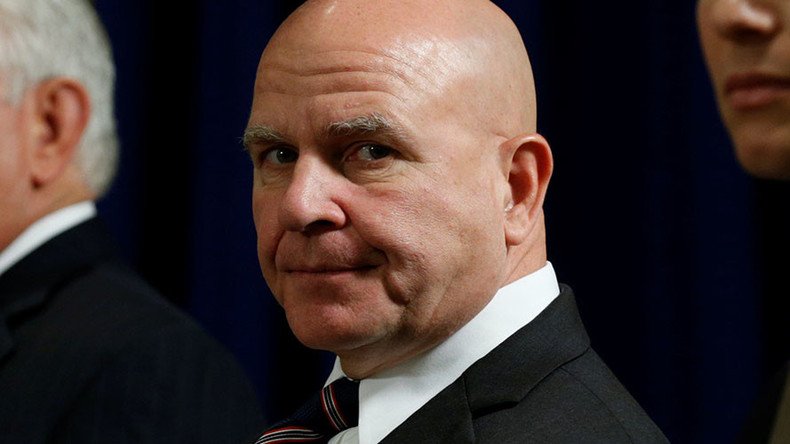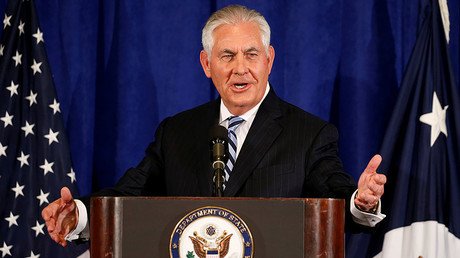HR McMaster pitches Trump’s ‘broadly different’ Iran strategy ahead of nuclear deal ‘decision’

President Donald Trump’s new line on Iran will mean a fundamental shift in Washington’s Iran strategy, National Security Adviser H.R. McMaster said in US media interviews, while accusing Tehran of “destabilizing activity.”
READ MORE: Trump may cite UN resolution to decertify Iran nuclear deal – US envoy to UN
The statements came at a time when officials are trying to explain the logic behind Trump’s stated intent to pull the US out of the JCPOA – an agreement on the scaling down of uranium enrichment signed by Tehran and the P5+1 (US, Russia, UK, France, China – plus Germany and the European Union) in 2015 in exchange for easing sanctions on Iran.
Trump has not disclosed his exact plans to allies or media, only saying "I'll let you know what the decision is” as he teased the press on Wednesday. Several US diplomats then raised Iran’s alleged non-compliance with the deal and attempted to link this to its missile tests and regional activity, despite the UN nuclear watchdog IAEA saying there were no violations of JCPOA.
"What's different about President Trump's approach to the nuclear deal is his approach to Iran broadly,” McMaster told NBC’s “Today”.
He insisted that Trump’s new strategy on Iran is aligned with his main priority to protect vital US interests.
“I think previously the approach to Iran was all about getting this deal and while that focus was happening and that was the focus of policy, Iran engaged in a broad range of destabilizing activity,” McMaster claimed, without specifying.
The adviser then accused Iran of working towards “enmeshing the greater Middle East in conflict, helping to perpetuate this...human and political catastrophe from Lebanon to Syria, to Iraq, to Yemen.”
"Our approach to Iran has to change fundamentally," McMaster told CBS. He added: “We have largely in recent years vacated very important competitive space with Iran in this sophisticated campaign of subversion where they're really creating almost a Hezbollah model across the greater Middle East."
READ MORE: 'Rogue newcomer': Rouhani calls Trump’s UN remarks over nuclear deal ‘ignorant & absurd’
In his other interview with the CNN’s “New Day”, McMaster said that the nuclear deal signed between Tehran and P5+1 was “fundamentally flawed.”
According to the adviser, Washington is looking at renegotiating parts of the Iran nuclear deal, changing some of its terms and its expiration date.
Trump has his eye on October 15 to announce his decision because it is the next time the president will be required under US law to re-assess the JCPOA through a Congress-created mechanism; this is done every 90 days.
If Trump decides to decertify the deal and finds the necessary arguments to do so, it will then go on to the US Congress, which will make a decision on how the US will move forward with the agreement.
McMaster has declined to elaborate on the details, only saying: “I know what the decision is but when the President reveals that, when he talks about it, he'll place it in context of the broader approach to Iran."
Trump’s apparent intention to re-negotiate the nuclear deal sharply contrasts with the position of other parties to the agreement, including the EU and Iran itself. EU Foreign Policy Chief Federica Mogherini said there was “no need” to re-negotiate the deal, while Iranian Foreign Minister Mohammad Javad Zarif flatly said that the agreement was “not (re)negotiable.” It is worthy of note that the P5+1 meeting at the UNGA in New York concluded with all sides – including the US – agreeing that Iran has been complying with the JCPOA terms.













